Previously on Drokk!: If there’s one thing that we’ve learned in the last couple of episodes of Drokk!, it’s that the 1990s was a strange time for Judge Dredd as a strip, but that things seemed to be on the upswing the more involved co-creator John Wagner got. If we learned two things, it’s that Wagner had a strange fascination with Bill Clinton, but go and listen to last month’s episode for more on that.
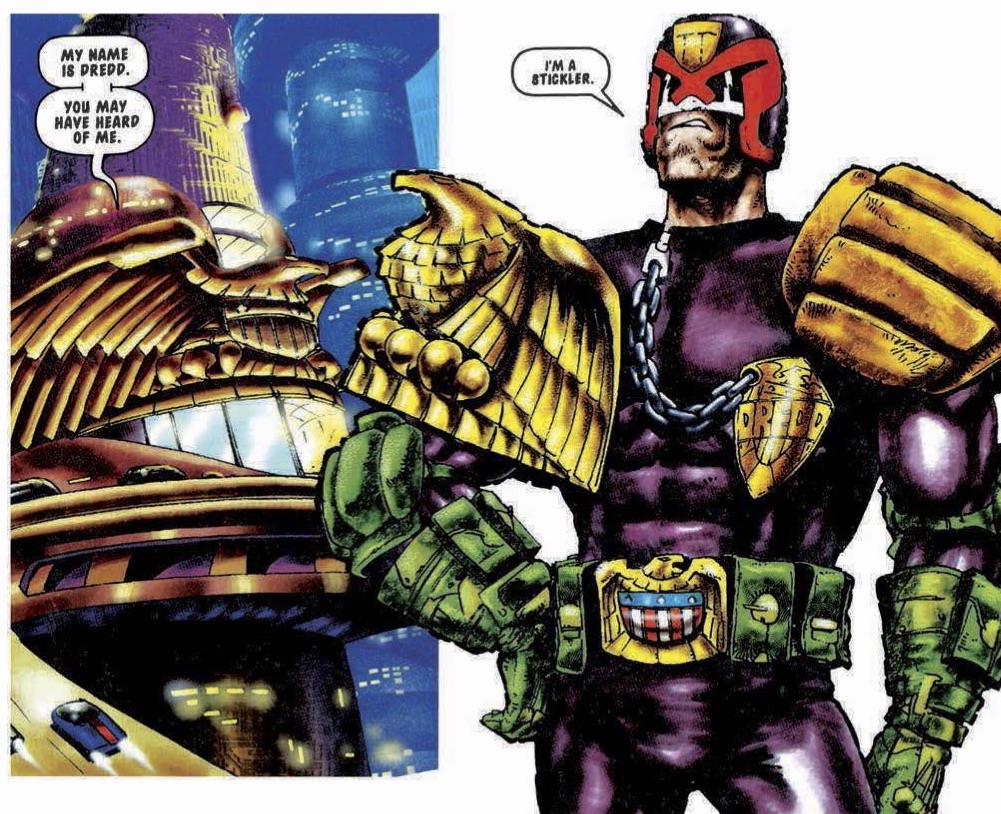
0:00:00-0:02:41: We’re going back literally 25 years for this month’s episode, with Judge Dredd: The Complete Case Files Vol. 24 offering material from a lot of different people dating back to 1995 and 1996 — and offering two different ways in which John Wagner tries to break the formula of the strip in particularly entertaining ways. (Also, the audio on my side is a bit odd this episode, but we’re coming from Verity Lambert Block, in case it’s not too clear.)
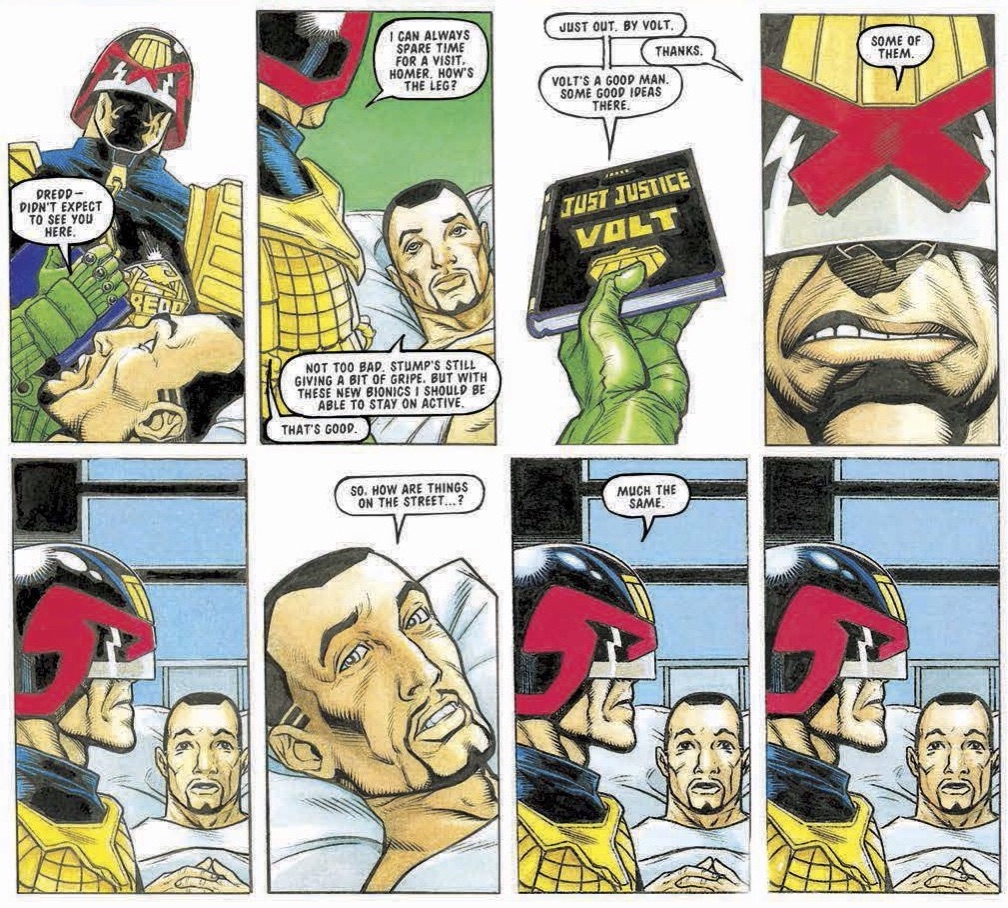
0:02:42-0:14:04: As is our tradition, we start off by talking about things that we didn’t particularly like about the volume, as we discuss whether or not the sheer competency of the material on display here — even the weaker stories — make this a surprisingly dull book, with the Judge Dredd Magazine strips in particular feeling disappointing. Is it just me? Jeff seems to like them well enough, after all, although that might be because he’s high when he’s reading…
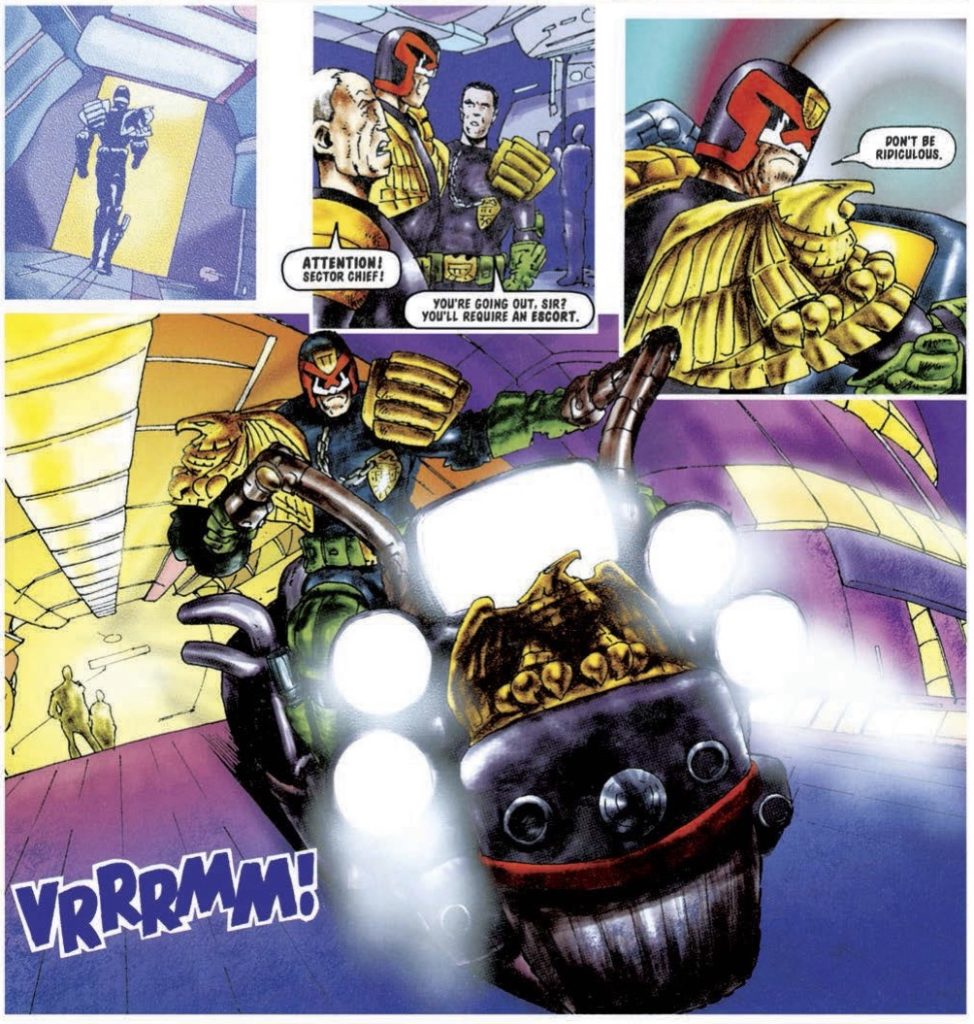
0:14:05-0:22:27: Earlier than intended, we just naturally fall into talking about “The Pit,” the longest of the stories in this book, and a sneaky soft reboot of the strip, to boot. What TV show is Wagner referencing, if at all? How does it underscore the strangeness at the heart of Dredd as a character? And, really, isn’t it great? (The answer to that last bit, at least, is “yes.”)

0:22:28-0:31:01: With Wagner offering up such strong work in “The Pit,” does that negatively impact everything around it? We talk about the possibility that the other stories aren’t necessarily bad, but simply pale in comparison to what Wagner’s doing. That doesn’t excuse Pat Mills’ contribution to the volume, which seems confusing on the very face of it — sure, “Hammerstein” has a Judge Dredd logo on it, but it’s most definitely not a Judge Dredd story. (Fans of the ABC Warriors, though, might be happy enough to see it.)
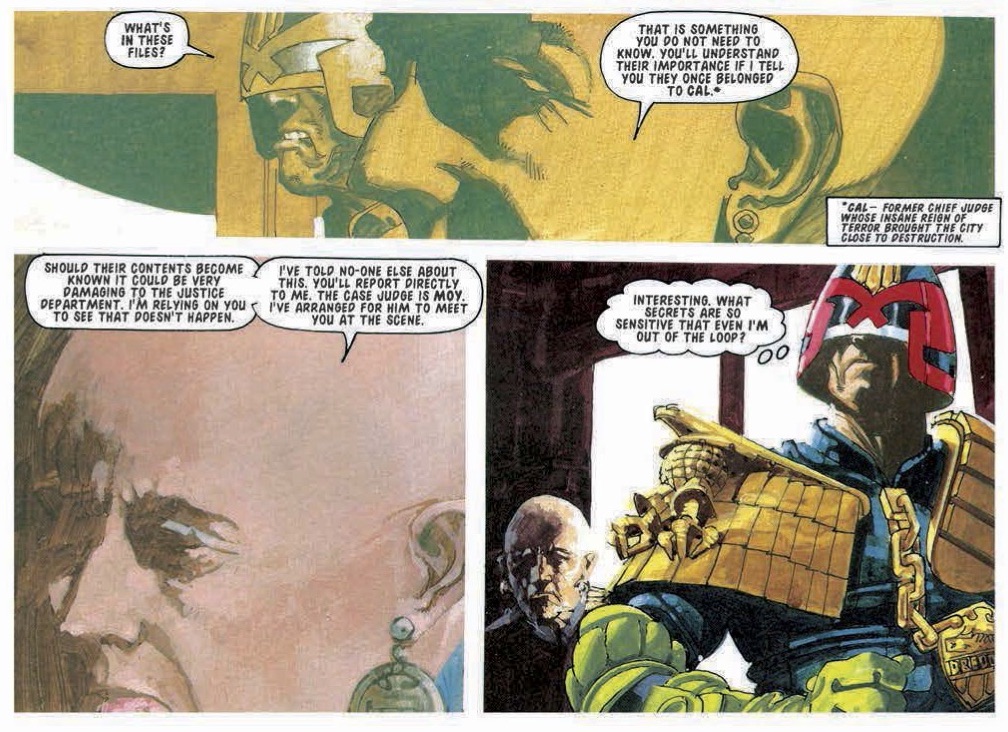
0:31:02-0:46:21: We barrel through stories, touching on “The Cal Files,” Wagner’s other significant contribution — and a really good storyline we could have spent more time on — as well as Mark Millar and Steve Yeowell’s beautifully-illustrated-but-trash-really “The Man Who Broke The Law,” the idea of a story being good for a particular creator but otherwise objectively shitty, and what Dan Abnett gets right in his sole contribution to the book that others fail at. Spoilers: it’s not just that he’s telling a Will Eisner Spirit story, despite my obsession with that strip as a model for good Dredd.
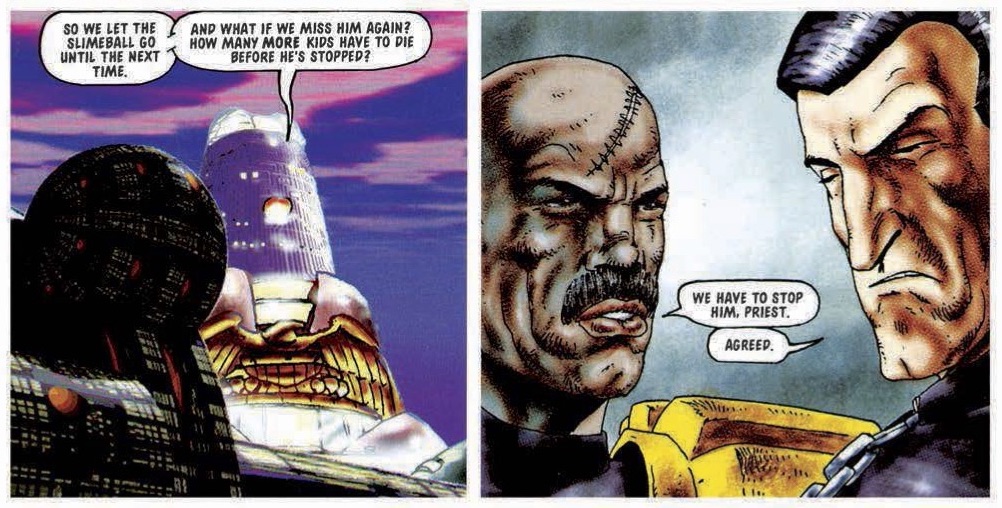
0:46:22-0:58:50: We head back into “The Pit” to talk about the way in which it is that rare thing: A Dredd strip that decentralizes Dredd and offers other characters the chance to have lives and relationships that don’t revolve entirely around ol’ stoney face. It is, as Jeff describes it, a serial that is full of “police drama-ness,” which feels surprisingly novel for a comic strip almost two decades into its existence that, in theory, is all about a policeman. Which leads us to talk about…
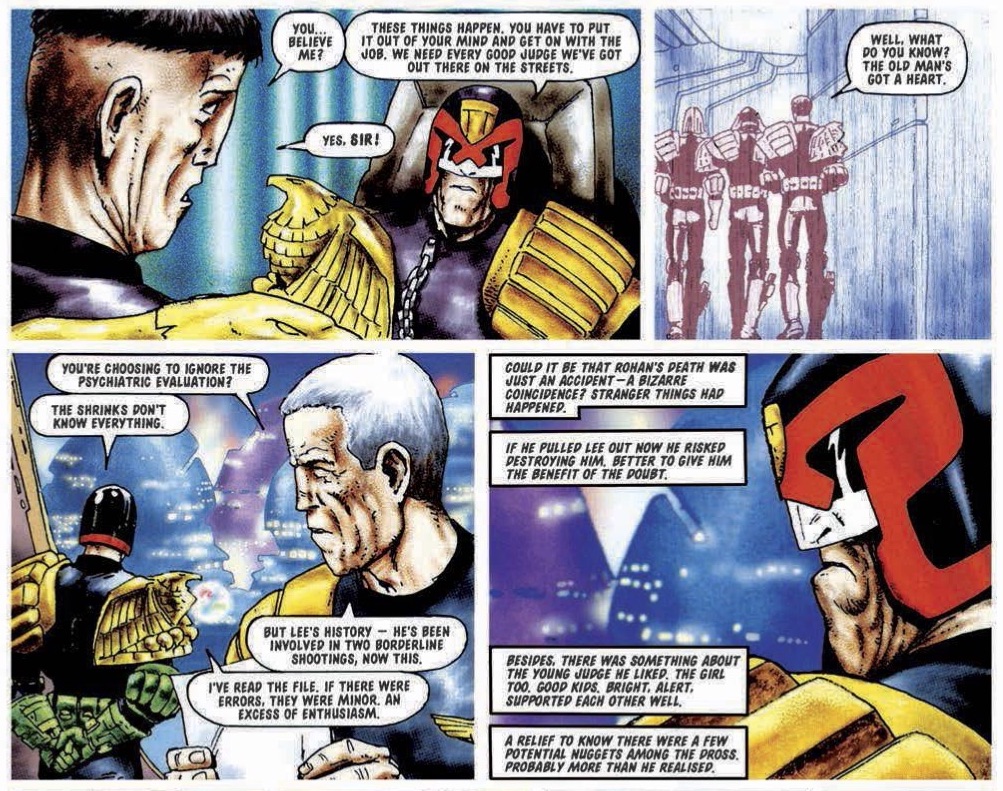
0:58:51-1:15:26: …the idea that John Wagner uses his two primary stories here to find new things to say about policing, as seen through the prism of Mega-City One, and what it means that Wagner continues to try and evolve the strip even as other writers are still trying to grapple with a formula he established years ago. Also discussed: Is Wagner like Jack Kirby, and if so, in what ways? Is “The Cal Files” the beginning of a reappraisal of an idea seemingly abandoned after “Mechanismo”? Was there a rethink at 2000 AD editorial about the different purposes of 2000 AD and the Magazine, in terms of what each individual series brings to the table that is Dredd?
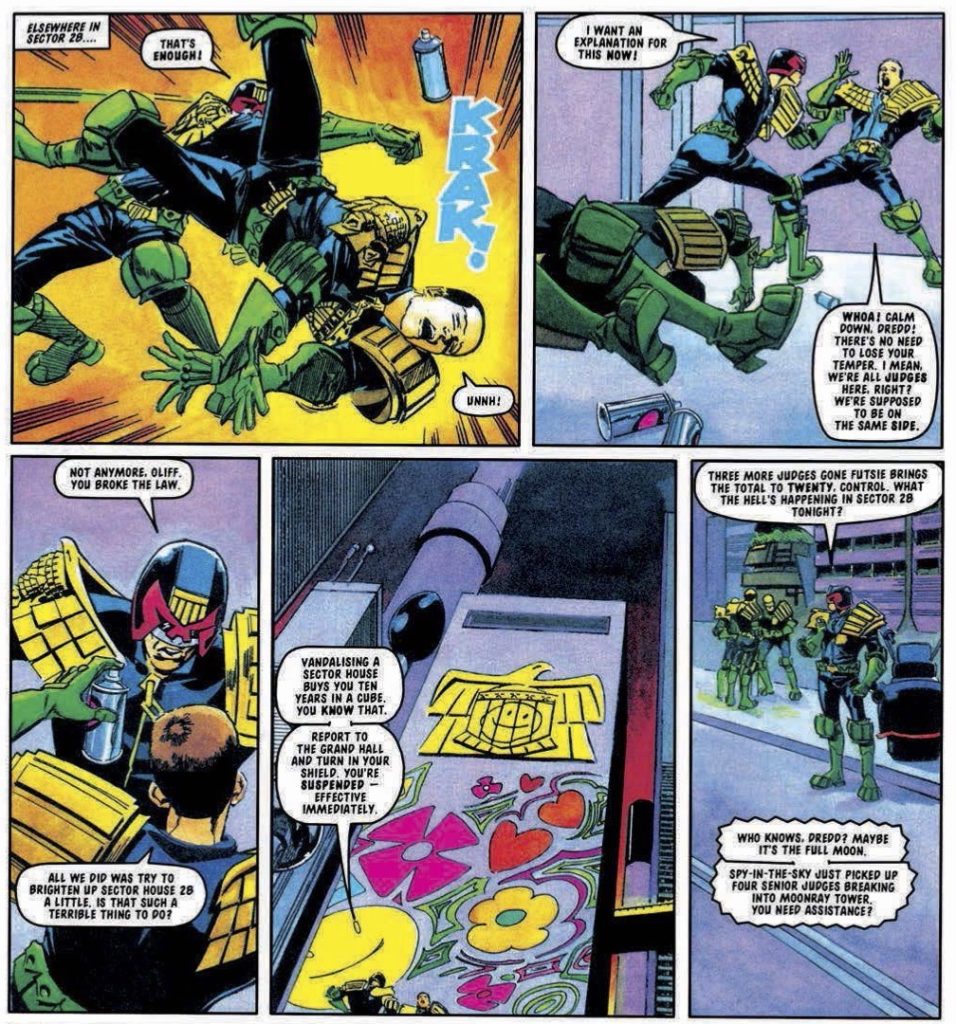
1:15:27-1:30:17: We back into the “Drokk or Dross question,” as I put it, by talking about whether or not the Magazine material really is worse than the 2000 AD material this time around, and offering up potential reasons why that might be so. (Both of us think it’s Drokk, by the way.) We also talk about the art in this volume, with me calling out both Steve Yeowell and Simon Davis, and offer up our favorite non-John Wagner stories here, before going on to praise Wagner to the heavens for “The Pit” especially, because (for me) it offers something new to Dredd as a series, and (for Jeff) it sees Wagner really approach things from a police procedural point of view, albeit in a skewed manner.
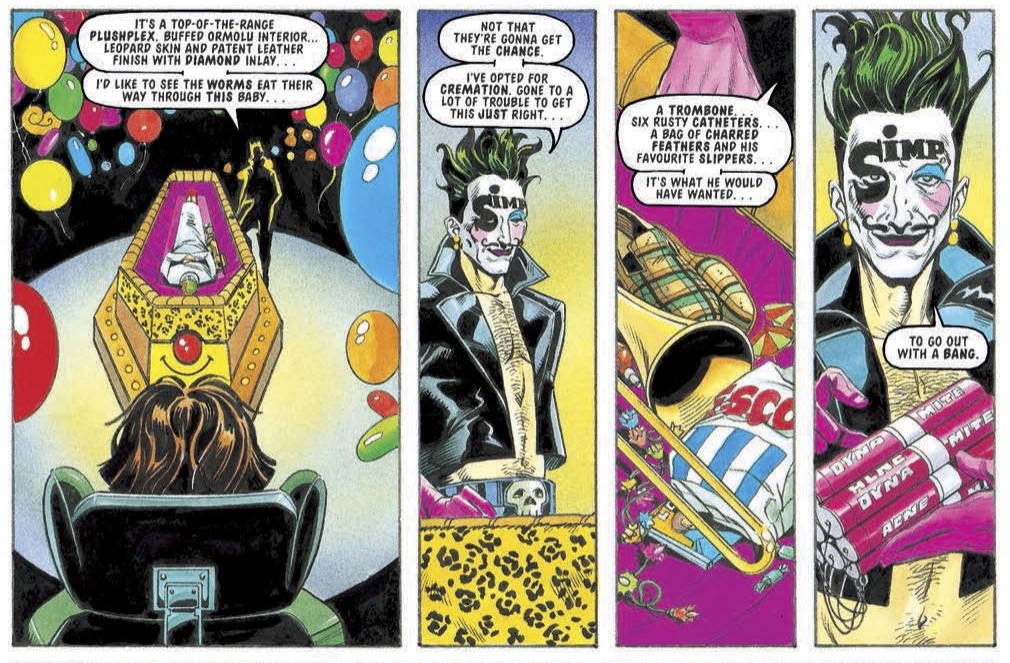
1:30:18-1:39:04: We’re not done, though; Jeff explores his love for the story “Mondo Simp” some more, and we discuss queer coding, and our differing reactions to where this story falls in the John Smith canon. There’s also a Mark Millar podcast idea that Jeff invents that has a name that really shouldn’t be ignored, and I hope someone picks it up and uses it as soon as possible. (And then invites Jeff on to share his feelings on the matter.)
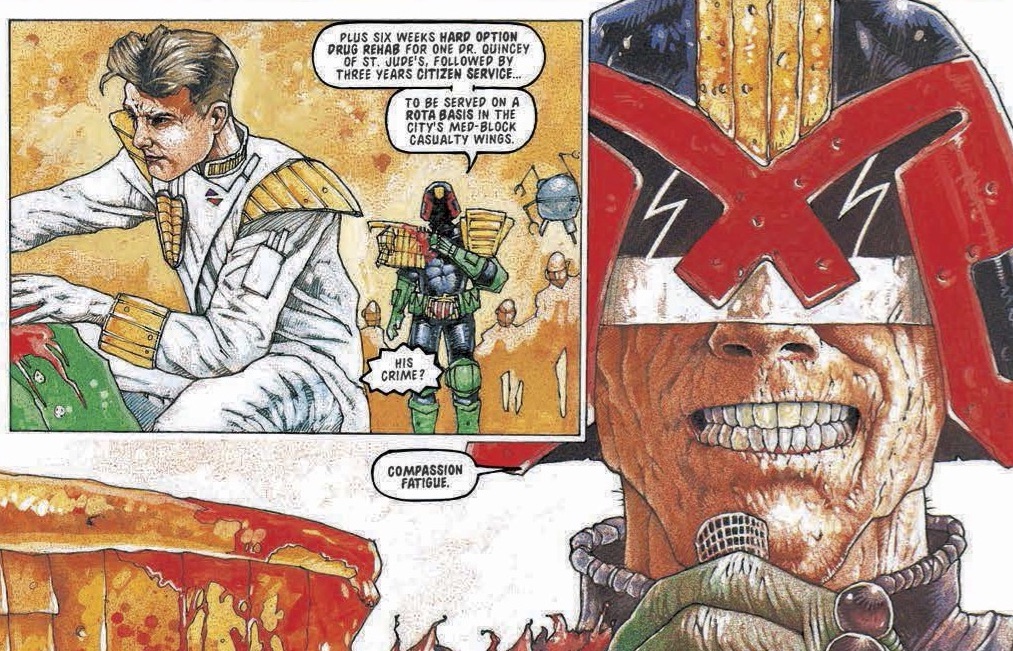
1:39:05-end: We close things down by reaffirming that we love “The Pit,” looking ahead to the next volume, and sharing the traditional mentions of our Tumblr, Instagram, Twitter and Patreon accounts, while also teasing a Geoff Johns discussion in the next Wait, What? that may never happen. This is why you tune in, Whatnauts, and we’re so very glad that you do.


And if you’re looking for the direct link, then here it is: http://theworkingdraft.com/media/Drokk/DrokkEp27.mp3
Until you talked about Judge Cal I heard the oft mentioned Cal Files as Cow Files…
Who is the person writing the book Shameless about Mark Millar? I want to find out more!
Unless I misheard, it’s the ever-wonderful Colin Smith! https://twitter.com/colin_tbtamc?lang=en
‘Grist for the Millar’ is a spooky peek into a dark timeline where Paul Grist draws a comic from a Mark Millar script.
Jeff Lester said that he “adored” The Pit, and I definitely also adore it. I’m worried that makes me a terrible person.
The thing is, we’ve never actually seen a Dredd quite like this before. Dredd has been a lot of things over the course of the strip: straightforward hero, tough-guy antihero, outright authoritarian monster, ridiculous posturing macho idiot. But I think this is the first time that we’ve seen a Dredd who is likable. And here I’d disagree with Graeme McMillan a bit: this is set up as a story in which Dredd doesn’t want to do the job of being Sector Chief, but it’s also a story in which, pretty much from the start, he’s pretty damn good at it (as Jeff Lester, management professional, was suggesting towards the end).
This is Dredd, the really good boss. Clear direction, inspiring, no ego, listens to subordinates and changes his mind if it seems appropriate, has a good sense of when he can give people the benefit of the doubt and second chances. He doesn’t want to be friends with the judges under his supervision, but he wants to see them do their best — this is particularly clear in how he handles Lee. In fact, it’s downright touching just how clear The Pit makes it that Dredd genuinely wants to like and respect his fellow judges, and has a lot of faith that, under the right circumstances, they can be judges that he likes and respects. He really means it when he says that there’s no greater honour than being a judge. “I’ll see you don’t go to traffic, Nuberg.”
There’s one possible counter-example, admittedly: Garvel’s suicide. But it’s presented as a consequence of a difficult decision that Dredd has to make and Wagner does not portray Dredd as heartless about how he tells Garvel the bad news or in his internal reaction to the death.
Overall, this is probably the single most realistically positive Dredd that we’ve ever seen, because he’s admirable, but still recognizable as being a human being. But shouldDredd be this likable and admirable a human being? Because, from the start, the fundamental assumption of The Pit is that we [i]should[/i], as the readers, be rooting for Dredd to succeed, that we should be on the side of the system. Which is a fairly big problem, given what the system is and how Wagner himself has did so much to point that out a few years earlier. There’s a definite sense of going back here at the same time as going forward, of returning to Dredd as an unalloyed hero, but this time a hero for adults.
One thing that I wonder is if some of this is informed by the film — not directly, obviously, but in that with a conventionally heroic Dredd on the big screen, Wagner felt it a good idea to give anyone who picked up the comic a Dredd they could feel was the hero.
Also, “Don’t be ridiculous,” is the most marvelously compressed riposte to Ennis, Millar, and Morrison. Wagner effortlessly makes Dredd seem much more impressive than any of their Dredds ever were, by communicating that Dredd doesn’t think he’s tough — he thinks he’s normal.